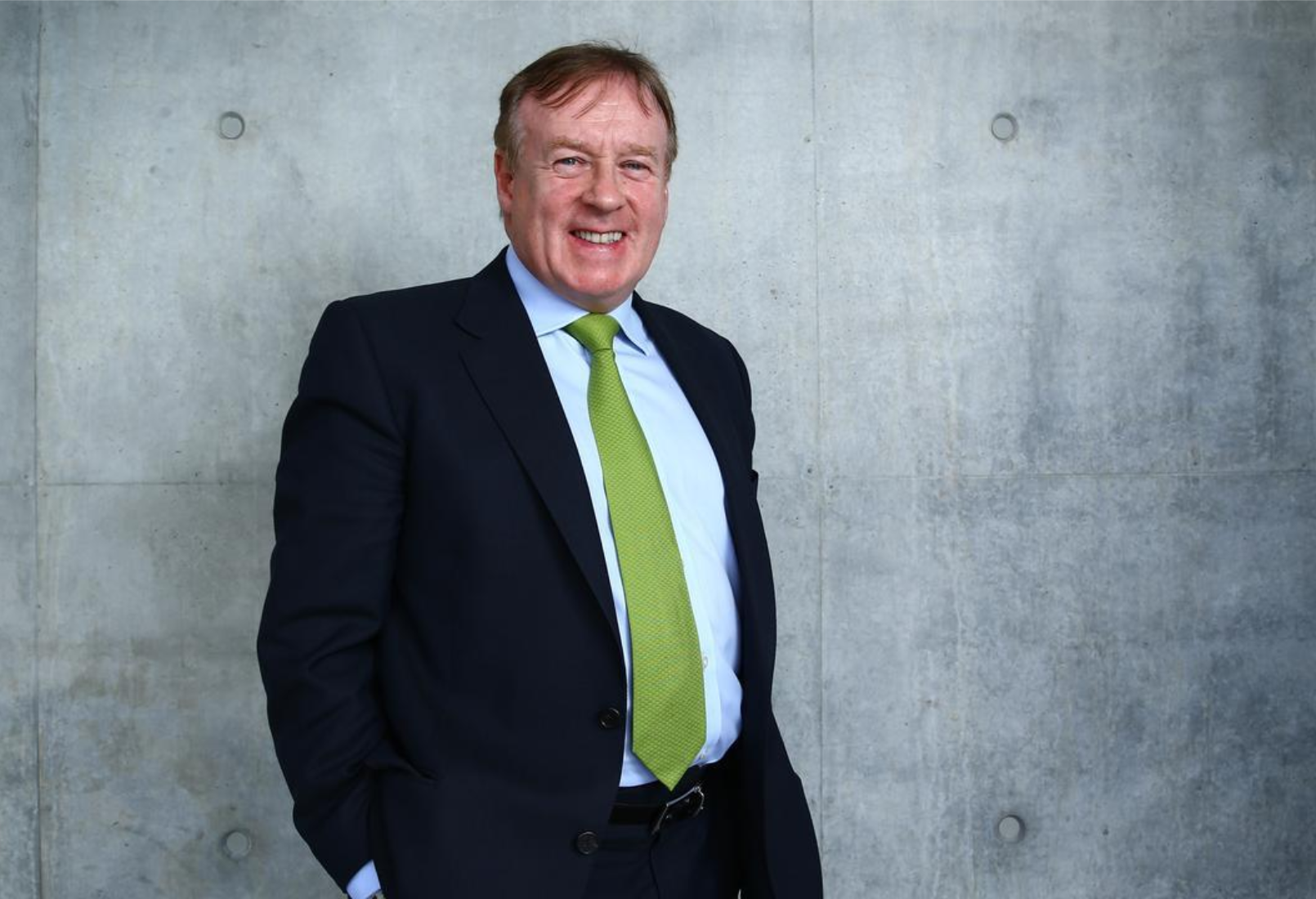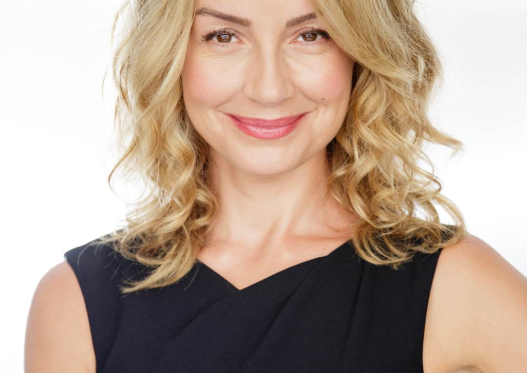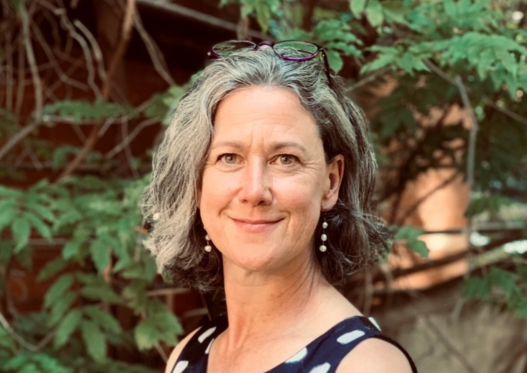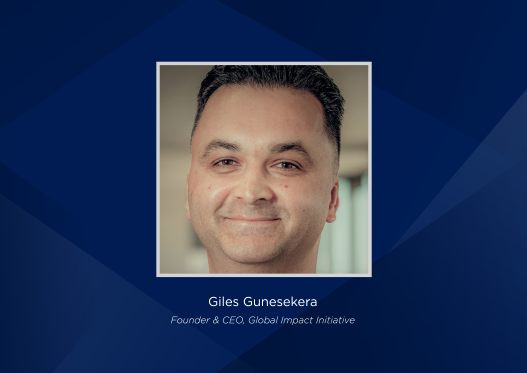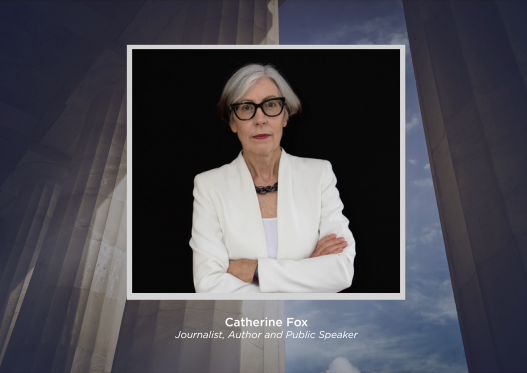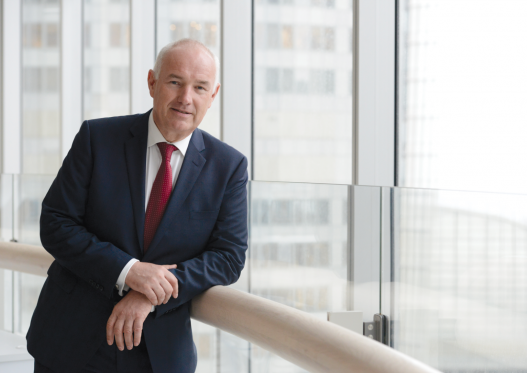Two or three times in 2016, the plan to build a bank from scratch was in peril for Joseph Healy and fellow founders of Judo Bank.
But the CEO of the first banking institution to float since the 1990s is now running a company in contention to be admitted to the S&P/ASX200 index after the fourth biggest IPO of the year.
Speaking before its ASX debut, one of FINSIA’s newest Senior Fellows talked to InFinance about the resilience and non-negotiable business case requirements needed to build a challenger bank and take it to the public markets.
“It hasn’t been an easy thing to do. When we started out on this journey, there was no precedent in the Australian market,” says Joseph.
“The idea of starting a new bank had people saying ‘it sounds good, but nobody's ever done that. This is a market dominated by four big giants, so how are you going to possibly succeed with all the power that they have?’
“To build a business, you're going to make losses for the first three or four years, put your own money in. People are not going to put money into the bank unless the key people are already putting their own money in.
“Having worked hard to build up savings and get rid of debt, then say, I'm going to take on more was a big risk. If it failed, you're absolutely toast.
“There were two or three occasions in 2016 and early 2017 when it looked very bleak.
“There was a prospect that we would have to just stop and wind things up. I always felt that we could make this successful, but there was two or three times when we thought, ‘we've got these expenses coming. We've not got enough money. We can't afford to do this.
“To be successful, you need to have a very clear vision of what it is you're building, and you have to be absolutely resilient.
“You've got to know that there's going to be many, many highs and several deep, deep lows. And your ability to kind of manage through that is really quite important.”
Joseph points to three must-haves that were ‘an absolute non-negotiable requirement’ of the business development case as a reason that Judo Bank has been such a success.
“The first of those must-haves was access to sufficient amount of capital to deliver on a five year plan,” he says.
“At that time, we said that we needed to raise $1.5 billion of equity over five years. We’ve raised $1.2 billion privately. When we list on the stock exchange on Monday, that'll be another $300m, and so that would bring us to the $1.5bn - almost spot on what we thought we would need.
“The second must-have was a very clear, compelling and sustainable competitive advantage. In other words, what were we bringing to the market that wasn't available in the market?
“What problem were we looking to solve that the market wasn't solving already? The problem that we were seeking to solve was the under service provided to the SME economy, which we believe had been subject to a triple U virus from the banking system - unloved, unwanted, and underserved.
“So we built a bank that specialised in SME, that's all that we did, all we thought about. That built a competitive advantage.
“The third must-have is a deeply experienced management bench, not just one person or two people, but deeply experienced team of people who understood banking A to Z and who were passionate about the SME economy.
“Those are the three things that have really underpinned the success of our company.
“The other thing - tying into that last must-have - is that we wanted to build an organisation that was founder centric where people working in the company felt like owners of the company, not like employees or hired hands.”
All 350-and-growing employees now have equity in Judo as part of this founder centrism culture that he believes makes it distinct from being like working inside a big bank.
“In the Judo culture, we wanted an ownership mindset, and we've got that. It's one of the most sacred and precious things that we want to protect and nourish,” he explains.
“The challenge is how to extend that culture and passion right down as the organisation grows? How do you maintain that culture of ownership or of being a founder rather than an employee? That's something that we work hard at.”
Working hard at restoring trust is also a part of the Judo Bank ethos and Joseph is on record saying that professional qualifications - from Chartered Banker and FINSIA - are certainly must-haves.
"I felt strongly that the industry had lost its way professionally, and that critical to building a bank that has a good reputation is a bank that's founded on a professional ethos, and using the qualification as one important way of making sure that that professionalism was instilled in the company,” he says.
“Professionalism remains central to the way that we want to manage and grow the company and the culture within the company.
“The industry has a real challenge, and that's cultural.
“A big part of that challenge is that it has lacked a professional ethos, and that has to change.
“If the industry is going to restore the trust that I think is fundamental to being a bank, then it has to start with making sure that its people are properly trained and educated in the fundamentals of banking and the expectations that society has on the way the banks should conduct themselves.
“I remain very, very committed to that.”
It’s clearly working.
Another 100 employees with a founder centric mindset will be recruited for the burgeoning bank over the next 12 months. As well as the major centres of Sydney, Melbourne, Brisbane and Perth, offices have opened in Newcastle and Geelong, Parramatta, Canberra, and Tasmania,
Joseph, who was made a Fellow of the Chartered Banker Institute last year, says: We'll continue investing, maintaining this founder centric culture.
“It’s really important. If you look at the great businesses around the world, there's lots of statistics to show that those run by people that have a founder mindset think like owners, versus businesses that don't have that. And the founder centric companies outperform by a country mile, and consistently over time.
“That was one of the other things that we said, having been 35 years in the industry, having worked for five different banks, we said, "Look, you only get a chance once to build a brand-new bank from a PowerPoint.
“Let's build the bank that we've always wanted to work in." It's a cultural thing. So I've never for a minute thought this is a chore, this is like work. This is a passion.”



